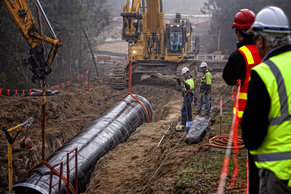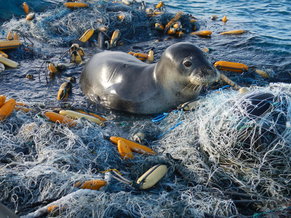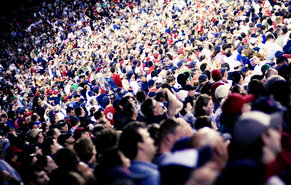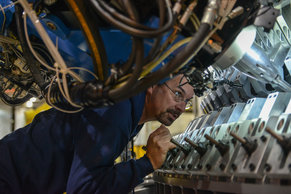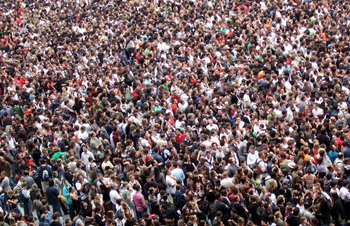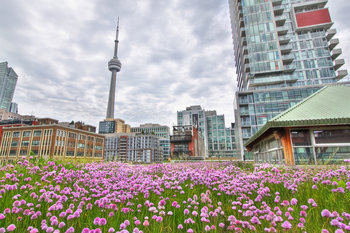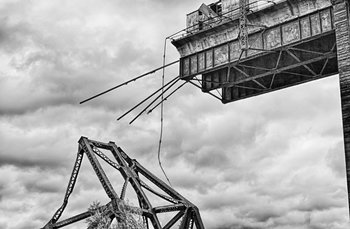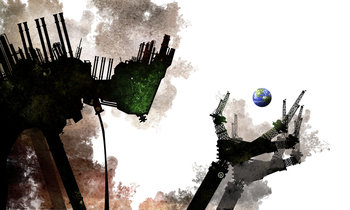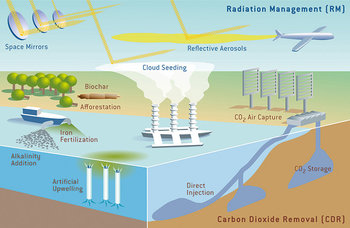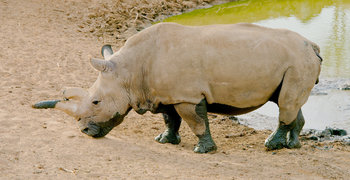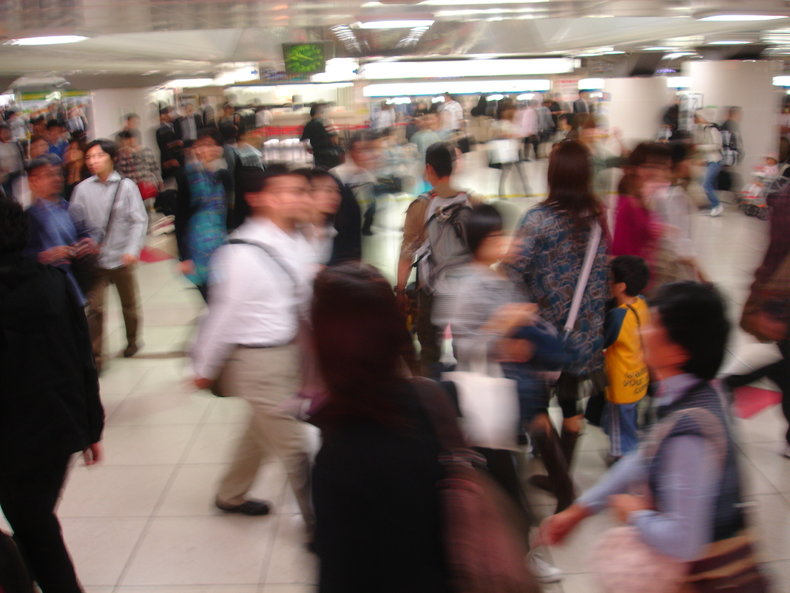
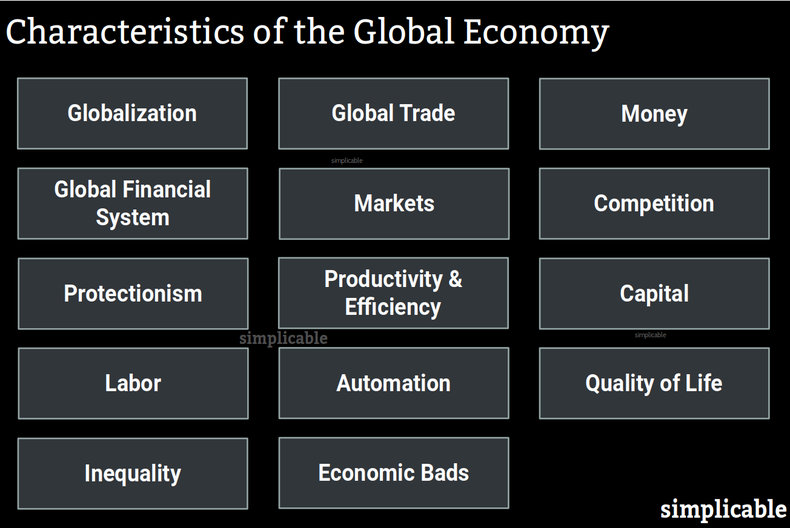
Globalization
Globalization is the process by which systems become integrated across borders. This is a long running process that has been underway for thousands of years but it currently accelerating due to factors such as technology and political stability. For example, air travel is an integrated system of travel that connects most countries.Global Trade
Global trade is the exchange of goods, services and capital across borders. This allows each nation to concentration its resources on producing goods that it is efficient at producing and trade for things that it is inefficient at producing. This is known as a comparative advantage. For example, if America is efficient at producing wheat and Vietnam is efficient at producing rice, both countries benefit by trading wheat for rice.Money
Money is a medium for storing wealth and exchanging value. Primitive societies used commodities such as tea for money. It is now common for money to be a paper, metal or digital entity that is backed by governments and their ability to collect future taxes. Without money, economic systems would breakdown as the alternative, known as barter is hopelessly inefficient.Global Financial System
A system of interconnected banks, markets and other financial institutions that offer services such as bank accounts, foreign exchange, investments, credit and transaction processing.Markets
The global economy functions as a market for goods, services, labor, credit and investments. For example, producers offer goods and consumers buy goods. This is efficient as it sets prices and allocates the resources of the world according to supply and demand. For example, if a producer makes a good that nobody wants it will not sell or will only sell at a very low price. This sparks innovation and efficiencies whereby producers constantly improve their offerings.Competition
Markets create competition. For example, if you want to offer your labor to the labor market you must compete with others for the same job. This gives workers incentives to pursue education, talents and experience that employers need. Likewise, firms compete for customers and this drives quality improvements and price reduction. Without competition, firms could offer low quality items that consumers would simply have to accept due to a lack of alternatives.Protectionism
Competition isn't complete in global markets due to laws, policies and practices designed to shield the economy of a nation from competition. For example, competition for jobs is limited by the need for a work visa to work in a particular nation. This lowers economic efficiency but arguably makes sense in some situations to protect culture or improve resiliency.Productivity & Efficiency
Productivity is the amount of value a worker creates in an hour. Efficiency is the amount of value a resource such as an acre of farm land creates in a period of time such as a year. These are the foundational measurements of economies. For example, an economy with high productivity and efficiency will produce a great deal of income and wealth.Capital
Capital is property that is expected to produce future value such as a tractor, field or factory. Money and other liquid assets are also considered capital as they can be used to buy productive assets. Capital such as infrastructure increases productivity. For example, a farmer with access to large machines such as a tractor is likely to be far more productive than a farmer working in hand tools.Labor
Labor is the work of people. The productivity of labor is related to their talents, knowledge and access to capital.Automation
Automation is the ability of capital to replace labor. Historically, automation has mostly replaced toil and freed people to do work that requires human talents such as strategy, knowledge, creativity, social skills and craft.Quality of Life
The global economy is the basis for quality of life for global populations. In 1800, global life expectancy was around 29 years with no country with a life expectancy over 40. Due to global economic growth people have access to improved living conditions such as food, water, housing, health care and education. As a result, global life expectancy was 72 years in 2016 with no country having a lower life expectancy than the highest life expectancy in 1800.Inequality
The global economy not only produces value but also distributes it. This distribution tends to be extremely uneven such that some people are very poor and others very rich. Taxation is one means for redistributing wealth to those who are in need where it is used to fund government services such as education and healthcare or entitlements such as retirement and disability pensions. However, it is common for the rich to have access to complex tax structures and strategies such that they pay little tax.Economic Bads
An economic bad is a negative result of the production of economic goods such as air pollution. The markets for economic goods are very efficient but markets for economic bads are missing. As such, it is common for firms and individuals to produce economic bads without paying any cost. This creates huge amounts of negative value that represent a large scale risk to quality of life on a global scale. There are two basic solutions to this problem: create markets for economic bads or create a system of extended producer responsibility.Notes
Markets for economic bads is a flexible system that allows consumers and producers to pay to create damage but this is capped at some sustainable level. Extended producer responsibility is an inflexible system that requires producers to reduce the end-to-end impact of their products and services towards zero. For example, requiring plastic producers to recollect all of their plastic and recycle it so that it doesn't end up floating in the ocean or getting burned in an open air pit.| Overview: Global Economy Characteristics | ||
Type | ||
Definition | The system that produces, distributes and consumes goods for the population of the planet. | |
Related Concepts | ||


